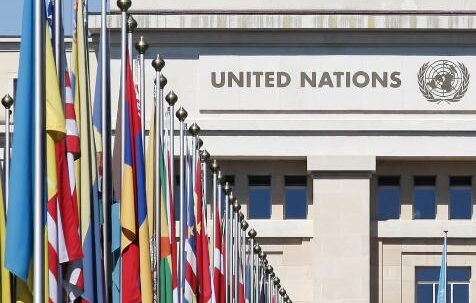As the world prepares for the COP30 Climate Summit in Belém, Brazil, United Nations Climate Change Executive Secretary, Simon Stiell, has called on countries to accelerate the flow of climate finance to vulnerable nations struggling with the devastating effects of global warming.
In a statement on Tuesday, Stiell emphasized that developing countries remain critically underfunded and ill-equipped to cope with the worsening consequences of climate change — including destructive storms, prolonged droughts, and deadly floods.
According to the statement obtained by The News Chronicle, Stiell urged nations to ensure that financial pledges are translated into immediate action, saying funds must “flow right now” to safeguard communities ahead of the crucial global talks scheduled for November.
“Whether or not countries need to be prepared to cope with a changing, more unpredictable climate is hardly in question,” Stiell said.
“Extreme weather events such as devastating wildfires, catastrophic droughts, and apocalyptic floods are making life increasingly difficult in all parts of the world.
“There are plenty of examples of effective measures that countries can take to adapt to this new normal, ranging from high sea walls to cyclone warning systems, floating homes and planting drought-tolerant crops,” he added.
The UN Climate Change body also released a new report assessing the progress of nations in developing and executing their National Adaptation Plans (NAPs). The findings revealed that a persistent shortfall in climate financing threatens to derail many of the initiatives currently underway.
Speaking at the report’s launch in Brasilia, Stiell reiterated that the worsening climate crisis continues to destroy lives and livelihoods worldwide, particularly in developing nations. He stressed that “adaptation is not optional; it is absolutely essential.”
According to him, investing in adaptation not only saves lives but also enables nations and communities to build resilience and prosper in a changing climate. He described National Adaptation Plans as “key to unleashing the epic transformative power of investing in climate resilience.”
Despite financial challenges, the UN chief noted that 67 developing nations have already submitted adaptation plans, including 23 least developed countries and 14 small island states. These plans, he said, outline each country’s unique priorities and provide clear guidance for potential investors and financial institutions.
The report also highlighted the growing inclusion of women, young people, Indigenous Peoples, local communities, and private sector actors in the climate adaptation process — a shift Stiell described as essential to achieving sustainable results.
With just 19 days to the opening of COP30, where discussions will centre on closing the global adaptation finance gap and mobilizing $1.3 trillion in funding, Stiell underscored that the upcoming conference would be a “key test of global solidarity.”
He added that the summit must “connect climate action to real lives everywhere to spread the vast benefits” of sustainable development and resilience-building.



